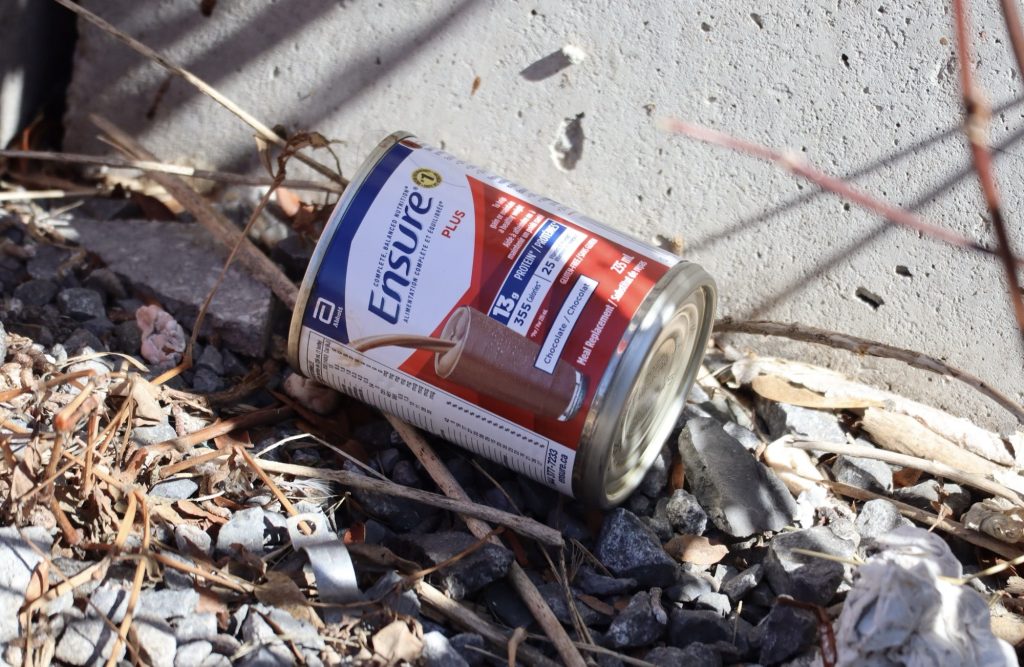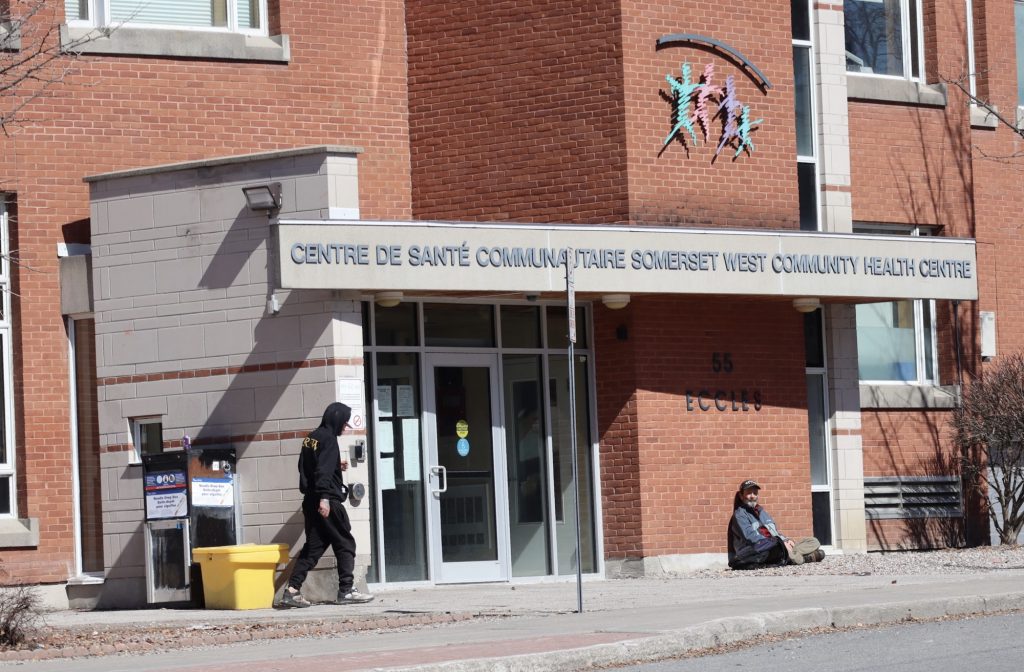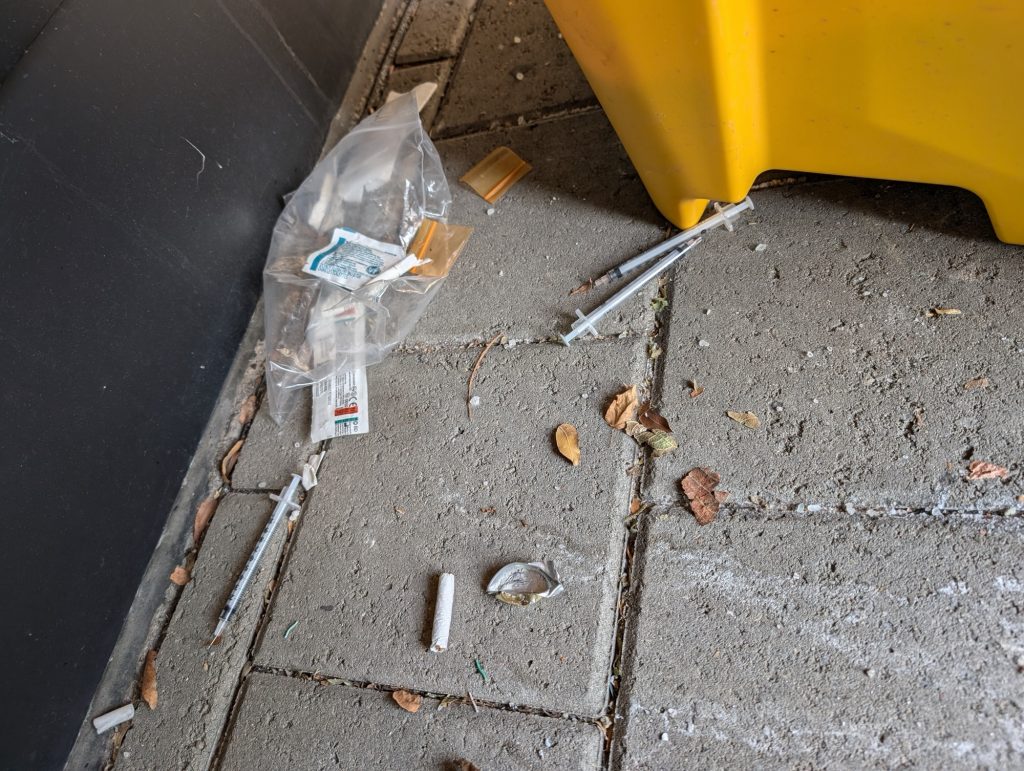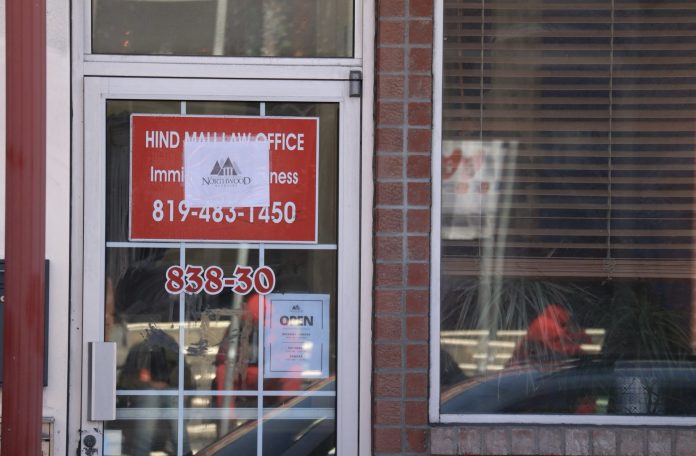Take a walk down Somerset Street and you will notice cans of Ensure scattered in alleyways. One might not acknowledge the discarded metal tins unless understanding their purpose: The nutritious shakes are consumed by people who are malnourished, often due to substance use.
The drinks, which provide vitamins and minerals to help boost the immune system, have been littered through Chinatown since Northwood Recovery moved into the community a few weeks ago.
Northwood’s arrival comes just a week after the closure of Somerset West Community Health Centre’s supervised consumption site, which had to shut down due to new rules enacted by the province.
Brenda Knight from the Centretown Community Association said neighbourhood residents have concerns about regulations and the lack of consultation.
“With the closure of the safe injection site, we have those people that no longer have service and help and assistance, so those people are on the street,” says Knight. “And now, a block away, we have this clinic.”
She says there was no prior communication with the clinic. “It just showed up and we were there.”

The new Somerset location is discreet; in fact, it would be easy to miss. Only a small poster is advertised on the door, printed on paper and taped to a former law office sign. When KT visited the site in late March, two people were seen hunched over inside.
The substance use clinic that offers prescribed alternatives to toxic street drugs was located in Hintonburg, but relocated months after opening due to community complaints.
When Northwood was operating on Wellington Street West, community members, city councillors, and Ottawa’s substance use experts repeatedly expressed concerns about the clinic’s methods. Open drug deals were reported alongside rowdy behaviour from those high on the prescribed drugs.
The physician and owner, Dr. Koka, meets with clients virtually, omitting a physical exam and the wraparound supports Ottawa’s harm reduction services champion.
Wraparound supports work in conjunction with primary care to provide individuals with holistic care. These often include supportive housing, legal aid, and mental health services.
In her newsletter, Somerset West Coun. Ariel Troster said she’s met with Northwood alongside community representatives. One of her demands was ensuring they have proper security in place alongside wraparound services.
“The city does not have the power to shut down a health clinic that is operating within the bounds of provincial law,” she said. “We are exploring how the Somerset West Community Health Centre can help provide wraparound support nearby and are working with the Ottawa Police and community outreach teams to ensure that the area in the immediate vicinity of the clinic remains safe for the entire community.”
“If this clinic won’t follow the Safer Supply Ottawa protocols, I will push to have it shut down,” Troster added on Facebook.
Safe consumption site closure will create gap in service
In a public statement announcing the closure of the supervised consumption site, Suzanne Obiorah, executive director of Somerset West Community Health Centre, emphasized a concern that “reducing life-saving interventions in favour of a shift solely toward addiction and recovery options will lead to more deaths.”
Despite their empirical success, harm reduction strategies like supervised consumption and prescribed alternative programs have become increasingly politicized and polarized. They are also forbidden programs in Ontario HART Hubs.
“The solution can not include a return to the stigmatization of substance use, the criminalization of illness, or the withdrawal of life-saving support,” said Obiorah.
Instead, the health centre is prioritizing holistic and interdisciplinary care for the new HART Hub.
Its “client journey map” outlines supportive housing, trauma-informed and culturally-sensitive peer support, mental and physical health care, and many other harm reduction initiatives.

At a nearby intersection, Chris, who asked for his last name not to be published, sits with a few others watching a security guard turn folks away from the yard behind the Somerset West clinic. He says the consumption site closure means more people will find themselves in places where they can’t get help.
Somerset West received additional funding for more robust outreach services, but that doesn’t compare with the 100 per cent survival rate the site delivered.
“They [supervised consumption sites] revive people every day when they’re using,” he says. “I myself have saved 86 people from overdoses away from the overdose centre.”
Chris arms himself with naloxone and sterile supplies from the clinic to distribute to his neighbours. He is also one of over 500 community members who relied on the safe consumption site.
He says the HART Hub is a great idea, but it needs to work in tandem with safer supply and supervised consumption programs.
Residents are also concerned about the disconnect between Northwood and the new HART Hub.
“If we have a significant number of people and their bodies need these drugs, how do we help them?” Knight asked.
The first step, she says, is arranging regular check-ins with Northwood’s doctor. Then, he provides his clients with “some kind of support, some direction perhaps on how to get away from your addiction.”
“It’s got to be a win-win,” she says. “Obviously he’s got his goals and this is our community. We’ve got to find a way to help our people.”
Better education needed
Knight says that people need to take accountability for what’s in their control rather than blaming broken systems.
“Organizationally, we’ve got to work on educating people and learning,” she added.
Kitchissippi resident Shelley McKay echoed Knight.
“Let’s not turn a blind eye. Let’s figure out how to use drop boxes, how to use naloxone,” McKay says. “Let’s get educated because the city can’t do it. They do not have the capacity and it’s not hard.”

Her pleas come after repeatedly finding discarded needles, pipes, and other supplies outside her building. The first time she called the city looking for someone to clean it up, she waited two days for a response.
McKay eventually popped over to the Wellington Drug Store where a pharmacist supplied her with drop boxes, gloves, and directions to safely clean up the paraphernalia herself. The pharmacist also mentioned puncture wounds and infections were on the rise from residents trying to dispose of drug debris themselves.
Since “it’s not going to go away,” McKay insists that citizens learn how to maintain the neighbourhood.
“It took me 15 minutes to clean up that stuff and then walk the drop boxes back to the drugstore,” she said.
With files by Charlie Senack
